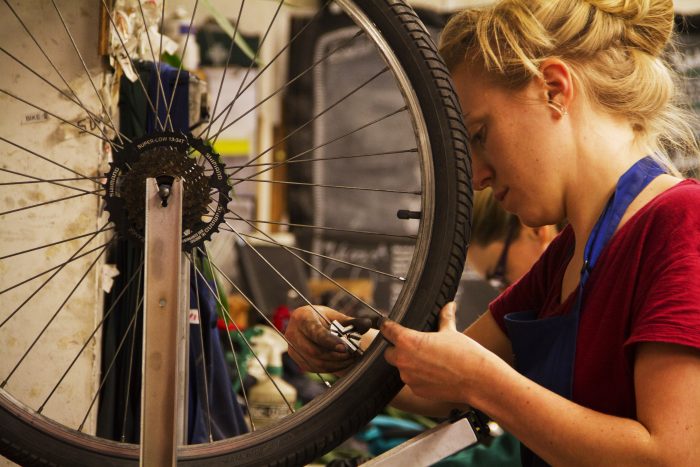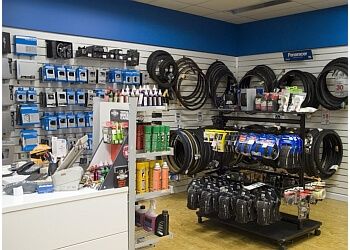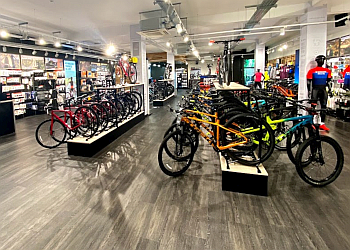
If you would like to get involved, or find out about sales, please email putting ‘bike’ in the subject line. We are self-funding and although further grant money is possibly available, we remain dependent on volunteer mechanics and helpers.

We are a non-profit-making organisation and part of the BASE co-op. We also take in old bikes that are no longer of any use, and recycle them into new & useable bikes that you can buy from us. We have parts available at cost price, if you need them. Our aim is to promote and maintain the use of cycles in the Easton area – we help you (learn how to) fix your own bike.

Hopefully, in this way it works as an educational catalyst to open up discourse around the issue of sustainability, forms of civic participation, alternative forms of transport, recycling and the migratory status of political asylum seekers in this country, in a solution based treatment that seems so woefully scarce in the current broadcast schedule.After a long period closed due to covid & our lack of useable safe space, the bike workshop is now open again, but at slightly different times to before (for now).Ībout the bike workshop: The Bike Workshop at BASE has been running since September 1997 and is staffed by volunteers. Crucially, it isn’t a film that tells you what to think, or just presents you with alarming figures and statistics like the worldometers website, but instead creates a narrative text that can be interpreted in a number of different ways. I’d like to go on to explore what can be learned from the success of this small film about sustainability, particularly questioning how it engages with the diversity of its audiences, in terms of demographics, production research, narrative construction, storytelling, aesthetics and personal testimony. The story of the film’s success is very much one of a localized grassroots workshop in Bristol somehow managing to access a truly globalised (and possibly sustainable) audience on a budget of £650. The film has also been used extensively in educational programmes throughout Eastern Europe as well as being viewed in a broad international demographic through the Vimeo online distribution site. This short 20 minute film has now been translated into fourteen different languages and has screened at over 40 film festivals around the world including in prestigous venues in London, New York, Madrid, Los Angeles, Vienna and do on. It effectively bypasses the broadcast / commissioned route in its treatment of cycling, recycling and political asylum. Set against that opening context, this paper looks at my own independent documentary practice that is specifically outside of the broadcast schedule, using The Bristol Bike Project (, including festival and distribution details) as an example of localized independent production that has evolved out of the intersices of documentary practice in Higher Education. Yet, looking at the television broadcast schedule of nearly 250 broadcast channels, it seems that the television industry is failing to address any of these issues in a consistent or serious manner.

The Worldometers website () is based on a live / real time feed of a range of global statistics : its shocking evidence suggests that we are approaching a perfect storm of peak oil, climate change and a rapidly increasing global population.


 0 kommentar(er)
0 kommentar(er)
